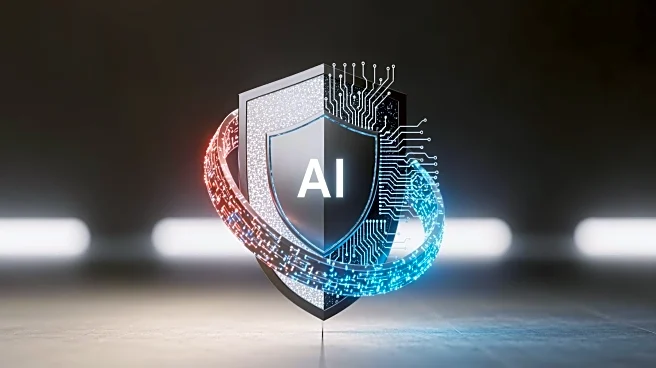What's Happening?
CrowdStrike CEO George Kurtz has publicly challenged the notion that artificial intelligence (AI) is rendering cloud-based software obsolete. In a recent interview, Kurtz emphasized the interdependence
of AI and software, arguing that software is essential for protecting AI systems. This debate arises from concerns that AI-enabled tools, which can operate autonomously, might reduce the need for traditional software-as-a-service (SaaS) models that charge clients per user. Additionally, there is apprehension that AI's ability to write code could diminish the demand for SaaS businesses. However, Kurtz contends that AI will actually enhance SaaS by enabling providers to develop superior applications. CrowdStrike, which offers cybersecurity solutions through its AI-driven Falcon platform, exemplifies this synergy by using AI to safeguard against breaches without requiring on-premises servers. The company's stock has seen significant growth, reflecting confidence in its strategy.
Why It's Important?
The discussion around AI's impact on software is crucial for the tech industry, particularly for companies relying on SaaS models. If AI were to significantly reduce the need for traditional software, it could disrupt existing business models and revenue streams. However, Kurtz's perspective suggests that AI could instead drive innovation within the SaaS sector, leading to more advanced and efficient software solutions. This could benefit companies like CrowdStrike, which integrate AI into their offerings, potentially leading to increased market share and profitability. The outcome of this debate will likely influence investment strategies and the future direction of software development.
What's Next?
As AI continues to evolve, companies will need to adapt their strategies to leverage its capabilities while maintaining the relevance of their software offerings. Stakeholders in the tech industry, including investors and developers, will be closely monitoring how companies like CrowdStrike navigate this landscape. The ongoing integration of AI into SaaS platforms could lead to new business opportunities and partnerships, as well as potential regulatory considerations regarding data security and privacy.
Beyond the Headlines
The ethical implications of AI's integration into software are significant. As AI becomes more autonomous, questions about accountability, transparency, and bias in AI-driven decisions will become more pressing. Companies will need to address these concerns to maintain public trust and comply with potential regulatory frameworks. Additionally, the cultural shift towards AI-driven solutions may impact workforce dynamics, as automation could alter job roles and require new skill sets.











